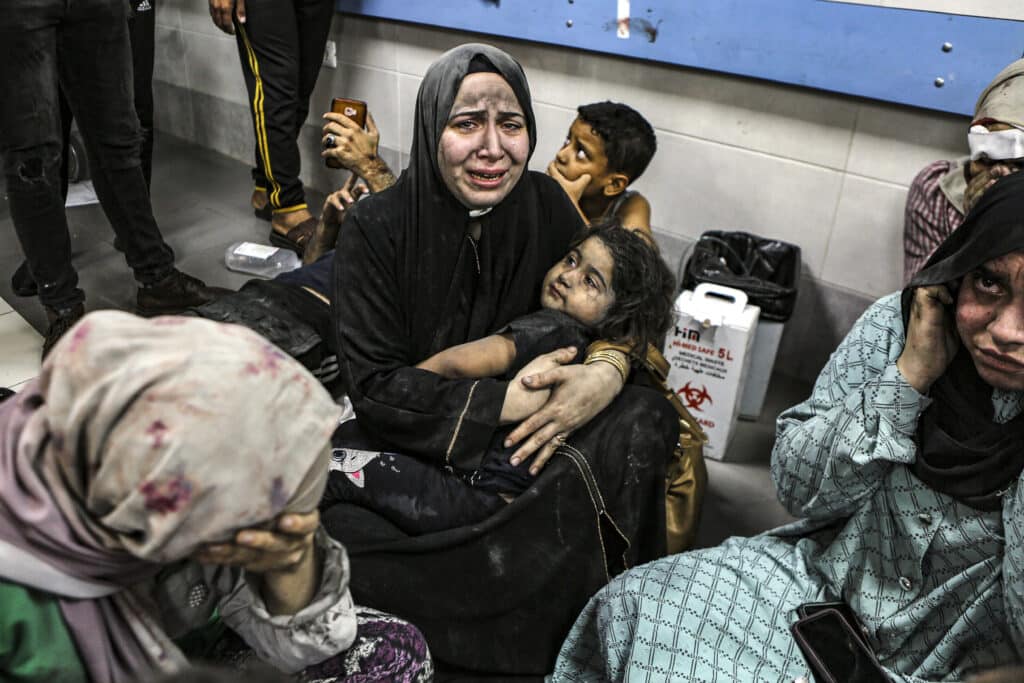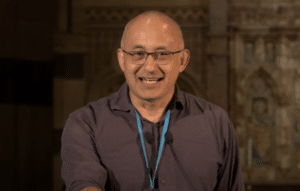
Jenan Taylor
29 November 2023
Aid groups say more water, fuel, medical supplies, and humanitarian assistance are urgently needed in Gaza, as the end of a six-day ceasefire between Israel and Hamas looms.
Humanitarian agencies warn that critical shortages of medical materials, water and fuel could worsen the situation for people in Gaza, particularly the sick and wounded.
It comes as Australian aid and civil groups called on the federal government to push for a permanent ceasefire, and an increase in humanitarian assistance to people in Gaza.
They said the brevity of the ceasefire and the availability of only one entry way for humanitarian vehicles hindered their ability to deliver the help that was needed.
Caritas Australia said its aid partners had mounting concerns about the availability of medical supplies in particular, and that the need for medicines had had grown exponentially because of the numbers of wounded people.
Read more: Gaza hospital in desperate need of supplies after attack
Humanitarian Emergencies Lead Sally Thomas said the partners reported that lots of medical interventions and surgeries were taking place under far from ideal conditions, because of the shortages.
“Emergency surgeries are happening without any anaesthesia. When you get bomb blasts, unfortunately, you also get a lot of burns. Painkillers are definitely not available for many people, and they would especially help children stay at least a little bit comfortable,” Ms Thomas said.
Médecins Sans Frontières Australia said the health system in Gaza had collapsed and the demand for medical supplies was enormous.
A spokesperson said Nasser hospital in the country’ south was intended for 300 patients but was currently handling more than 1000 sick and injured.
Read more: Christians condemn bombing of Gaza Anglican hospital
MSF Australian executive director Jennifer Tierney told ABC News that aside from a complete dearth of medical supplies, including disinfectants, there was a need for more staff to replace those who had died and those who were exhausted.
She said the organisation was focussing on attending to those with the most serious injuries and getting food and water in and providing burns and primary care in the final two days of the reprieve.
Oxfam Australia said it was most concerned about the lack of fuel.
Chief executive Lyn Morgain said water, food were very important, and that water would normally come first, but without fuel there could be no transport or sanitation in Gaza.
“We have sewerage now flowing in the streets and into the Mediterranean Sea. We know the children are suffering now obvious illnesses as a consequence of having no fresh water for more than 30 days,” Ms Morgain said.
“Getting the sewerage plants up and running is absolutely critical. And really, we haven’t had time to do the technical analysis to tell us exactly how long that might be. But we know that we need fuel to do it.”
But Ms Morgain said very little aid has managed to get through in the ceasefire, and that less than a quarter of the 800 humanitarian trucks that were agreed to, had managed to make it into Gaza.
Ms Thomas said Caritas’s partners were delivering water, hygiene kits, mats, blankets and mattresses, items necessary for the approaching winter.
But she said trucks were blockaded at Rafah the northern Egyptian town bordering Gaza, and the only entry for humanitarian aid vehicles. Once they were inside Gaza further challenges, including badly damaged roads, further hindered the distribution of the materials.
Ms Thomas said a longer or permanent ceasefire would enable multiple humanitarian routes to be opened.
Read more: International community urged to keep aiding vulnerable Afghans as earthquakes continue
“It would also enable wounded people and family members to exit Gaza also. This is what we would like our government to get behind and to really advocate for,” Ms Thomas said.
Ms Morgain said the humanitarian organisations asked the Australian government to exercise more urgency in thinking about how humanitarian organisations could meet the needs of the people, because it was such a dire situation on the ground.
“There is no shelter, women are giving birth in the open with no cover. We have to think about a ceasefire first and foremost because without that we cannot do anything at all,” Ms Morgain said.
MSF Head of Operations for the Occupied Palestinian Territories Michele Lacharité said the organisation was deeply worried about the prospects of the people falling back into the sealed-off war zone after the short-lived relief.
To donate to the response efforts, please see Oxfam Australia, Caritas Australia, Médecins Sans Frontières, or Anglican Overseas Aid.
For more faith news, follow The Melbourne Anglican on Facebook, Instagram, or subscribe to our weekly emails.






